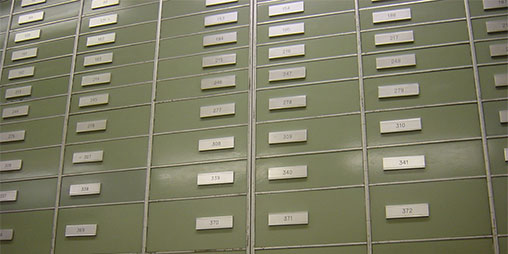Delaware Chancery Approves a Books and Records Request Concerning Alleged Subsidiary Fraud in Oklahoma Firefighters Pension and Retirement System v. Citigroup Inc.

In Oklahoma Firefighters Pension & Ret. Sys. v. Citigroup Inc., No. CV 9587-ML (VCN), 2015 WL 1884453 (Del. Ch. Apr. 24, 2015), a Delaware Chancery Court judge found that Del. Code Ann. tit. 8, § 220 (“Section 220”) permitted access to two corporate subsidiaries’ books and records relating to alleged fraud and violation of banking laws.
Background
In early 2014, Citigroup discovered that one of its subsidiaries, Banco Nacional de Mexico, may have been involved in fraudulent activity, which Citigroup described as “significant.” Around the same time, Citigroup disclosed in its filing on Form 10-K that another of its subsidiaries, Banamex USA, had received subpoenas from the U.S. Attorney’s Office of the District of Massachusetts resulting from an investigation of its alleged failure to comply with the Bank Secrecy Act and anti-money laundering requirements. This investigation came soon after Citigoup and Banamex USA had entered into consent orders with various government regulators arising from similar investigations.
The Shareholder’s Request to Inspect Books and Records
In March 2014, a Citigroup shareholder made a Section 220 demand to inspect books and records concerning the conduct of Banco Nacional de Mexico and Banamex USA. The shareholder’s purpose was to investigate possible mismanagement and breaches of fiduciary duty by Citigroup’s directors and officers related to these events and to evaluate potential derivative litigation. Citigroup denied the request.
Citigroup’s Challenge to the Shareholder’s Request
The shareholder filed suit in Delaware Chancery Court. In June 2014, the case was tried before a master in chancery, who, while narrowing the scope of the requested documents, concluded that the shareholder was entitled to conduct the inspection. Citigroup filed exceptions to the master’s conclusion on two bases: (1) the shareholder failed to establish a proper purpose for the requested inspection and (2) the scope of the requested inspection was overbroad. In April 2014, a year after the shareholder’s original request, the court rejected both arguments and approved the master’s conclusion.
First, the court noted that, under Section 220, a shareholder can inspect books and records for “any proper purpose.” Del. Code Ann. tit. 8, § 220(b). When the shareholder’s stated purpose is the investigation of waste and mismanagement, the shareholder must identify a “credible basis” from which the court can infer that waste and mismanagement occurred, but as the court explained, the “credible basis” standard establishes “the lowest possible burden of proof.” Id. at *4.
The court concluded that the shareholder’s investigation of Banco Nacional de Mexico’s fraud was a proper purpose and noted the impact of the fraud on Citigroup’s overall operations. The court also concluded that the shareholder’s investigation of Banamex USA’s compliance with the Bank Secrecy Act and anti-money laundering requirements was a proper purpose, because the shareholder was entitled to inspect documents to evaluate whether Citigroup had correctly implemented the prior consent orders concerning similar allegations.
Second, the court found that the master had appropriately limited the scope of the inspection. While noting that a Section 220 inspection “is restricted to inspection of the books and records needed to perform the task . . . [and] inspection is limited to those documents that are necessary, essential, and sufficient for the shareholders’ purpose,” the court concluded that “the scope recommended by the master is appropriately tailored to allow plaintiff to investigate its potential claims while mitigating the burden on Citigroup.” Id. at *7 (internal quotation marks omitted). The master imposed specific timeframes designed to limit the shareholder’s inspection to only relevant documents, and the court’s specifically noted these timeframes in approving the master’s decision.
Takeaways
First, a year elapsed between the shareholder’s initial request and the Chancery Court’s rejection of Citigroup’s challenge. Companies and shareholders should be prepared to engage in not insignificant litigation when a books and records request is contested, keeping in mind that a shareholder victory may ultimately fail to uncover helpful documents.
Second, after the Delaware Supreme Court’s ruling in Wal-Mart Stores, Inc. v. Indiana Elec. Workers Pension Trust Fund IBEW, 95 A.3d 1264 (Del. 2014), the battle between companies and investigating shareholders may continue to shift the significant costs and demands on time from the later derivative demand phase to the earlier phase of a books and records request. On the one hand, this may decrease net mutual costs of derivative litigation, to the extent that shareholders’ counsel are truly using these requests to investigate to determine whether bringing a shareholder demand is worthwhile. On the other hand, when such a books and records request merely accompanies a conclusory shareholder demand based on the company’s public disclosures, companies should anticipate an increase in overall costs associated with responding to both requests. Moreover, as in Walmart, this case also approved an inspection request targeted at the conduct of an entity’s subsidiaries.
